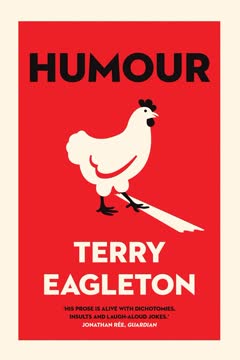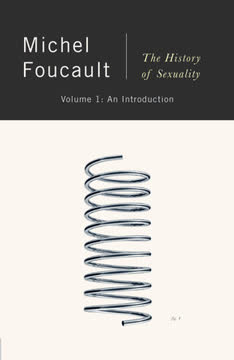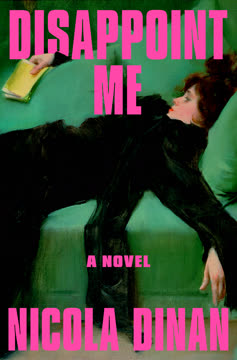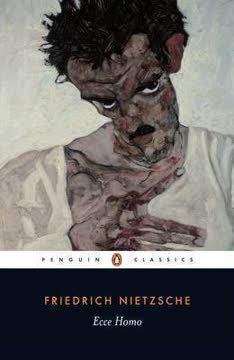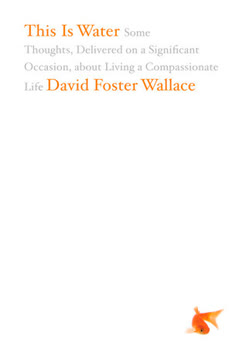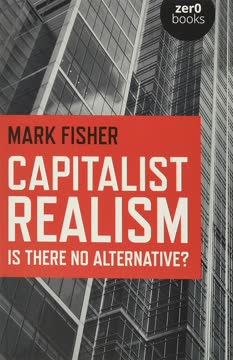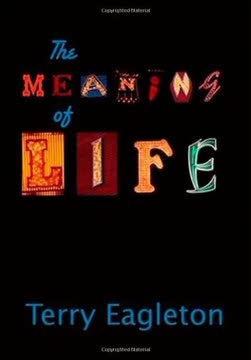Key Takeaways
1. The Multifaceted and Elusive Nature of Humor
It is, in short, a manner of speaking out of the simple and plain way . . . which by a pretty surprising uncouthness in conceit or expression doth affect and amuse the fancy, shewing in it some wonder and breathing some delight thereto.
Defining the indefinable. Humor is notoriously difficult to pin down, defying exhaustive definitions due to its versatile and multiform nature. It can manifest in countless ways, from sly questions and smart answers to tart irony, startling metaphors, or acute nonsense, often arising from a "pretty surprising uncouthness" in thought or expression. This inherent slipperiness means that any single formula struggles to encompass its full scope.
A language of its own. Laughter, the primary physical manifestation of humor, is a universal phenomenon yet incredibly diverse, expressed through a host of different idioms like cackling, chortling, sniggering, or guffawing. Beyond mere sound, these forms convey a wide range of emotional attitudes—joyous, sarcastic, nervous, aggressive—and are deeply socially coded, existing at the cusp of nature and culture. This paradox highlights how a spontaneous physical act is imbued with rich cultural meaning.
Beyond amusement. Most forms of laughter are not solely about amusement; they can signify high spirits, social bonding, or even distress, blurring the lines with other intense emotions like grief. Laughter can be a bodily disorder, a loss of self-control that momentarily pitches the ego into disarray, akin to an animal's cry. This raw, physical aspect, often involving the disintegration of sense, underscores its profound connection to our primal, uncoordinated selves, making it both distinctively human and alarmingly animal.
2. Laughter as a Release of Psychic Tension
Mirth is caused by a gush of agreeable feeling which follows the cessation of unpleasant mental strain.
The relief mechanism. One of the most influential theories posits humor as a form of relief, where laughter results from the sudden transformation of heightened expectation into nothing, or a "gush of agreeable feeling" following the cessation of unpleasant mental strain. This perspective, championed by thinkers like Kant and Spencer, suggests that humor provides a gratifying release from psychological burdens.
Freud's economic view. Sigmund Freud elaborated on the release theory, arguing that jokes represent a discharge of psychic energy normally invested in maintaining social inhibitions and repressing illicit desires. By relaxing superegoic repression, we save on unconscious exertion and expend it as laughter. This "economics of humor" suggests that jokes are impudent smacks at the superego, allowing us to indulge in rebellion while assuaging guilt, as the conquest is purely provisional and symbolic.
Desublimation and dropping masks. Humor often involves desublimation, where energies invested in noble ideals or reputable moral fronts are released as laughter when these are rudely punctured. This allows us to momentarily drop the mask of conventional social roles and revel in being openly crude, cynical, or self-indulgent, or simply to be released from the "compulsion of logic" and the exigencies of sense-making. It's a brief vacation from the mild oppressiveness of everyday meaning, offering an infantile satisfaction as we regress to a state before the strictures of the reality principle.
3. The Superiority Theory: Laughter's Darker Side
Sudden glory is the passion that maketh those grimaces called laughter; and is caused either by some sudden act of their own, that pleaseth them; or by the apprehension of some deformed thing in another, by comparison whereof they suddenly applaud themselves.
Laughter at others' expense. The ancient superiority theory, articulated by Hobbes, posits that humor springs from a gratifying sense of one's own "eminency" compared to the frailty, obtuseness, or absurdity of others. This "sudden glory" can be a malicious joy in others' miseries (Schadenfreude), allowing the ego to feel an illusory invulnerability by trivializing what causes it anxiety or by projecting its own deficiencies onto others.
A social corrective. Henri Bergson extended this idea, viewing humor as a social corrective intended to humiliate and whip aberrations back into line. He argued that we laugh at people and things that become mindlessly automated, obsessive, or unable to adapt, with laughter serving to enforce psychological plasticity and social conformity. For Bergson, comedy demands a "momentary anaesthesia of the heart," making it incompatible with strong affect or empathy.
Detachment and its consequences. This theory often implies a detached, aloof, and even heartless engagement with reality, where observing others' gaffes provides a spurious sense of invulnerability or even immortality. While this detachment can sometimes breed a kind of compassion, as seen in George Eliot's "affectionately condescending distance" towards her characters, it can also lead to a cynical, fatalistic view of humanity as pathetic insects caught in pointless cycles, as in Schopenhauer's grimly comic vision.
4. Incongruity: The Foundational Element of Comedy
Where’er the power of ridicule displays Her quaint-ey’d visage, some incongruous form, Some stubborn dissonance of things combin’d, Strikes on the quick observer.
The clash of the unexpected. The incongruity theory, widely considered the most plausible account, posits that humor arises from a clash of incompatible aspects—a sudden shift of perspective, an unexpected slippage of meaning, or an arresting dissonance. This "derailment of sense" involves the disruption of orderly thought processes or the violation of laws and conventions, striking the observer with a "stubborn dissonance of things combin'd."
Variations on a theme. Incongruity manifests in diverse forms, from the clash between an object's concept and its sensory perception (Schopenhauer) to the tension between ideal and actual (Emerson). Examples include:
- A police officer asking about "Mr. Fog" instead of "mist or fog."
- A painting titled "Lenin in St Petersburg" depicting his wife with another man in Moscow.
- Wordplay and puns that force a sudden revision of meaning, like "The Duke's a long time coming today," said the Duchess, stirring her tea with the other hand."
- The disproportionate request of a man asking for castration when he meant circumcision.
Beyond mere discrepancy. While many comic devices—irony, bathos, ambiguity, defamiliarisation—can be subsumed under incongruity, the concept itself faces challenges. Not all incongruities are amusing; some are alarming or disgusting, and the concept's elasticity can stretch it beyond usefulness. Ultimately, the incongruity theory describes what we laugh at but not why, necessitating its splicing with the release theory to explain the psychic energy discharge that produces laughter.
5. Historical Resistance to Laughter and Its Social Threat
Laughter was eliminated from religious cult, from feudal and state ceremonials, etiquette, and from all the genres of high speculation.
Elites' suspicion of mirth. Throughout ancient and medieval Europe, governing elites and religious institutions harbored a deep suspicion of humor, often viewing it as a class affair with a firm distinction between "civilized amusement" and "vulgar cackling." Plato discouraged laughter among the Guardian class, St. Paul forbade "jesting," and monastic rules often prohibited joking, reflecting a pervasive fear of frivolity and loss of control.
A threat to order. This churlish suspicion stemmed from a deeper terror: the dissolution of the individual body in laughter was seen as a potential presage to popular riot and social chaos. Laughter's dangerously democratic quality—anyone can do it without specialized expertise—threatened sovereign power by making light of momentous matters like suffering and death, thereby diminishing the force of judicial sanctions and fostering an insouciance that loosened authority's grip.
Puritanical and philosophical disdain. The resistance to comedy intensified with Puritanism, but also found echoes in philosophical thought. Hobbes's morose theory of humor, rooted in civil war and possessive individualism, saw mirth as an expression of antagonism. Even figures like Shelley reportedly believed that "no complete regeneration of humankind until laughter is put down," highlighting a grim prospect where even radical libertarians viewed humor with askance.
6. The Eighteenth-Century Shift to Benevolent and Genteel Humor
Humour grows kindly and . . . bizarre quirks of personality are not aberrations calling for satiric attack but amiable eccentricities to be savoured and enjoyed.
From satire to serenity. The 18th century marked a significant shift away from corrosive satire towards a more cordial and affable worldview, particularly among the English gentry and emerging middle classes. This "blitheness of spirit" characterized the English gentleman, where good humor became central to a dominant ideology, serving as a counterblast to the "tight-lipped zealot and sectarian bigot" and promoting ease, naturalness, flexibility, and tolerance.
The cult of congeniality. This new sensibility, often flourishing on the Gaelic fringes where communal notions persisted, emphasized sociability over individualism. Thinkers like Francis Hutcheson championed natural affections, benevolence, and gratuitous goodness, seeing laughter as a "phatic" act of communication that fosters mutual delight and friendship. The joke became a metaphor for amicable social relations, prefiguring a more companionable society and even the kingdom of God.
Refining the bourgeoisie. This cultural politics aimed to aestheticize social existence, tempering the hard-headedness of the bourgeoisie with manners, civility, and domestic affections. Humor, amiability, and good humor were seen as lubricating the wheels of commerce, fostering mutual sympathies, and civilizing society. This "feel-good" factor, buoyed by imperial power and economic expansion, allowed the middle class to consolidate its identity by coming to terms with the aristocracy rather than confronting them.
7. Wit: A Patrician Blend of Elegance and Aggression
Wit is a vein of humour which disrupts conventional expectations, deviating mischievously from the predictable; but it does so for the most part lightly and casually, without the rancour of the political militant or the heavy-handedness of the bourgeois.
The art of the sharp retort. Wit, particularly prominent in English culture, emerged as a major weapon against middle-class gravitas. It's a form of spontaneous humor that doesn't require effort, making it suitable for upper-class layabouts. Wit combines polish and brutality, sublimating aversion into intellectual dexterity, and allowing one to dominate others through superior force of personality rather than blunt tactics.
Form and function. Witticisms are characterized by their brevity, shapeliness, and concision, reflecting both elegance and a gentleman's horror of boring others. This "shaft" of wit flies swiftly and unerringly to its target, capable of both illuminating and wounding. While appearing natural and apposite, wit belies the craft invested in it, demonstrating Nature perfected by art, and delighting in the artistry of the utterance as much as its content.
A way of life. More than just a sporadic gag, wit can signify a general disposition, a permanent mild amusement of one dissociated from the world. It represents a momentary leap out of necessity into freedom, offering compensation for the longueurs of everyday existence. This intellectual pleasure, often involving "unexpected justness" and a "nimble sagacity of apprehension," is a minor victory of mind over matter, reflecting a supple creative intelligence.
8. Humor's Profound Political Ambiguity
If it can censure, debunk and transform, it can also dissolve essential social conflicts in an explosion of mirth.
A double-edged sword. Humor is a politically ambiguous phenomenon, capable of both subverting and reinforcing social norms. While it can censure, debunk, and transform, it can also dissolve essential social conflicts in an explosion of mirth, acting as a form of mutual disarming. This duality means that humor can either challenge authority or provide a safety valve for subversive energies, making it a complex tool in any political landscape.
Reinforcement or subversion? Some argue that all jokes are subversive, exposing the arbitrariness of social meanings, while others contend that humor transgresses authority only to reinstate it, or even sustains oppression by creating an illusion of effective interior freedom. The truth is more nuanced: humor sometimes reinforces power, sometimes subverts it, and sometimes simply exists without a clear political agenda.
The "Us vs. Them" dynamic. Humor often creates solidarity within a group, but this bond can be inseparable from a sense of difference from others, potentially breeding antagonism. While some forms of humor, like Bakhtin's carnival, aim for boundless fellowship, others, as seen in racist or sexist jokes, explicitly rely on exclusion and vilification. This highlights the tension between humor as a utopian force for unity and as a weapon for division.
9. Comedy as a Confrontation with Uncomfortable Truths
A real comedian – that’s a daring man. He dares to see what his listeners shy away from, fear to express.
The comedian's daring. In Trevor Griffiths's Comedians, Eddie Waters argues that a "real comedian" is a daring individual who confronts and articulates truths that listeners shy away from, especially about what hurts or terrifies them. This isn't humor as disavowal, but as a way to transcend trauma without negating it, demanding courage and truthfulness to liberate the will and desire, and ultimately "change the situation."
The cost of truth. Waters's philosophy is starkly contrasted with Bert Challenor's cynical view of comedy as a mere commodity for "thick" audiences, and with the students' readiness to resort to smut and racist invective for success. Gethin Price, Waters's student, embodies a militant, aggressive satire, deliberately "aggressively unfunny" and dehumanized to expose the ugliness of the class system. His act, born of hate, challenges Waters's call for compassion, arguing that "truth was a fist you hit with."
Beyond hate. Waters, however, reveals a deeper struggle: his own experience at a Nazi concentration camp, where he felt a perverse sexual arousal, led him to conclude that "there were no jokes left" and that "hate's no help." This presents a profound dilemma: how can one confront injustice with humor without being tainted by the very inhumanity it decries, or without letting hate consume the possibility of a more compassionate future? The play leaves this tension unresolved, questioning whether humor can truly reconcile truth and comedy in inhuman conditions.
10. Carnival: The Utopian and Grotesque Fusion of Laughter
To degrade . . . means to concern oneself with the lower stratum of the body, the life of the belly and the reproductive organs . . . it has not only a destructive, negative aspect, but also a regenerative one.
A world turned upside down. Mikhail Bakhtin's theory of carnival presents a powerful vision of humor as a counter-culture that is both real and ideal, a utopian domain of freedom, community, and equality. In carnival, all status, norms, privileges, and prohibitions are temporarily suspended, replaced by a free, frank idiom that diminishes distance between individuals and liberates them from decency and etiquette. It's a riotously deconstructive force, collapsing hierarchies and travestying sacred truths, all in the cause of fun and friendship.
Grotesque realism. Carnival's discourse is double-edged, a "grotesque realism" that mocks, lampoons, and disfigures to attain a transfigured world, yet does so with a spirit of affirmation. It's a blend of violence and comradeship, cursing and praising, slander and festivity, where degradation is intertwined with regeneration. The focus on the "lower stratum of the body"—defecation, copulation, birth—symbolizes this cycle of destruction and renewal, where the old dies for the new to be born.
The imperishable body. The carnivalesque body is unfinished, open-ended, and perpetually in process, a riposte to the timelessness of official ideologies. Its orifices, those liminal places where inner and outer merge, symbolize the interchange and interorientation between bodies and the world, binding individuals into an eternal collectivity. This joyful assurance of the collective body's imperishability fuels carnival's fearlessness, its exuberant sense of being insulated from harm, even as it provides a safety valve for subversive energies.
Last updated:
Review Summary
Humour by Terry Eagleton receives mixed reviews. Some praise its philosophical depth and historical perspective on comedy, while others find it dry and overly academic. Readers appreciate Eagleton's analysis of humor theories and cultural contexts but criticize the book's organization and dense writing style. Several reviewers note the irony of a book about humor being relatively unfunny. The work is seen as comprehensive but occasionally tedious, with some finding value in its insights and others struggling to engage with the content.
Similar Books
Download PDF
Download EPUB
.epub digital book format is ideal for reading ebooks on phones, tablets, and e-readers.
